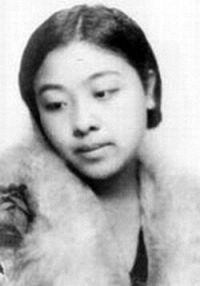Difference between revisions of "CIIC:Today's featured article/May 27, 2010"
From Wiki China org cn
imported>Ciic m (Created page with 'thumb|200px|right|Ding Ling '''Ding Ling''' (the penname of Jiang Bingzhi) was a writer and revolutionary who joined the Communist Party of China after ...') |
imported>Ciic |
||
| Line 1: | Line 1: | ||
| − | [[File:dingling.jpg|thumb|200px| | + | [[File:dingling.jpg|thumb|200px|left|Ding Ling]] |
'''Ding Ling''' (the penname of Jiang Bingzhi) was a writer and revolutionary who joined the [[Communist Party of China]] after the Nationalists executed her husband, the poet [[Hu Yepin]], in 1932. She was jailed by the Nationalists in the 1930s and again during the Cultural Revolution. Her most famous work was ''Miss Sophie’s Diary'' which chronicles a young woman’s battle against the constraints of the old society. ('''[[Ding Ling|More...]]''') | '''Ding Ling''' (the penname of Jiang Bingzhi) was a writer and revolutionary who joined the [[Communist Party of China]] after the Nationalists executed her husband, the poet [[Hu Yepin]], in 1932. She was jailed by the Nationalists in the 1930s and again during the Cultural Revolution. Her most famous work was ''Miss Sophie’s Diary'' which chronicles a young woman’s battle against the constraints of the old society. ('''[[Ding Ling|More...]]''') | ||
Latest revision as of 05:38, 26 May 2010
Ding Ling (the penname of Jiang Bingzhi) was a writer and revolutionary who joined the Communist Party of China after the Nationalists executed her husband, the poet Hu Yepin, in 1932. She was jailed by the Nationalists in the 1930s and again during the Cultural Revolution. Her most famous work was Miss Sophie’s Diary which chronicles a young woman’s battle against the constraints of the old society. (More...)
